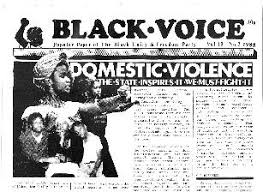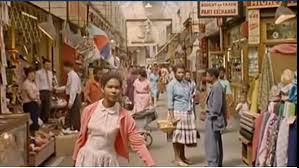OK, so the formal obituary for Manu Dibangu has been filed and published https://www.newframe.com/farewell-saxophonist-great-manu-dibango/.

But I’ve also got my own story of Dibangu’s music, from another time and place: before his “discovery” by the American record industry.
My encounter with Soul Makossa, in London in the 1970s, demonstrates the impressive reach of the pan-African musical landscape, the electric Africa that Dibangu constantly advocated, and how music and politics are closer than sisters. It’s quite a long story, because it needs context first.
Shopping at Sterns
There was a shop called Sterns on Warren Street, off the central Tottenham Court Road. At the front, it sold small electrical goods; in the back, impenetrable stacks of cardboard boxes held imported African music LPs, predominantly from Congo and Nigeria, often hot off the presses and the boat.

As much as the library, canteen and auditorium of the Africa Centre (donated by the Catholic Church in 1962, opened by Kenneth Kaunda in 1964), it was a hub and meeting place for homesick African students and anti-colonial scholars and campaigners.

Partying in Brixton
In South London suburbs such as Brixton, Peckham, Stoke Newington and more, many of these strugglers found affordable accommodation, alongside their Windrush Generation elders. In the same suburbs, campaigning black organisations such as the Marxist-Leninist Black Unity and Freedom Party (BUFP) organised and held meetings. They campaigned against racist atrocities such as the killing of Aseta Simms at Stoke Newington Police Station and the New Cross Fire and built worldwide links (with, for example, Nkrumah’s Convention People’s Party in Ghana, and the ANC through its exiled officials in London). BUFP membership was limited to people of colour. But because it situated the key contradictions in society with class rather than race (and took gender very seriously), it also co-operated with white working-class organisations like ARM, the Maoist fragment to which I belonged.

Which brings us back to music, because there were not only Parties, but parties. The streets of those South London suburbs on a Saturday night shook with community “blues”:
Dancing at a Blues
All a blues needed was a living room; a sound system, and a tireless team of entrepreneurial family cooks generating samoosas, beef patties, curry, fried plantain, fried chicken and more, with Red Stripe beer and Appletons Estate Rum on sale. And we’d all – party people and Party people – scour the streets for the best one. In my case, we often relied on the critical ears of our friend Girleen Williams, who could catch the first four bars from a sound system and move us swiftly on with a dismissive “Tsk! Small island!” I’ll be honest: there were tensions between African and Caribbean migrant communities, assiduously fostered by the British state. But at the parties where conscious dancers dominated, African music got needletime too.
A roomful of liberation politics
The house parties were magical events. If I were writing fiction, I’d imagine a room that hosted every pan-African liberation luminary at once – but that never happened. However, over a series of Saturday nights you might find yourself dancing (or equally, arguing theory) with people who included, to name a few, Ugandan scholar Dan Wadada Nabudere, BUFP guest speaker Walter Rodney, British Black Panther Darcus Howe, South African guitarist Lucky Ranku – and the man who should have been Cameroon’s first post-independence President, revered socialist leader Ndeh Ntumazah.

…And Manu on the turntable
With Ndeh around, Manu Dibangu on the turntable was a no-brainer.
When Soul Makossa arrived at Sterns (the French Fiesta pressing, two years before Atlantic), everybody wanted it. When the album sleeve was spotted at a party, everybody wanted it played. And when it was played, everybody – including the normally staid and thoughtful, pushing-50, Ndeh – danced.
That’s one of the memories that has stayed with me: politicos, civilians and Rastas, “police and thieves”, black and white Londoners with roots everywhere in the world, young and old, moving joyfully together to mama-se /mama-sa/mama- ma-koss –a!
Whatever country they hailed from, all the Africans knew that song – in 1972, two years before the track allegedly went “international”.

In Africa, it was already international: a whole continent had been buying it, talking about it, sending letters to the student nephew at SOAS urging, “You must get this record.” And when me, the naïve Brit, asked solemnly about “tradition”, I was quickly corrected. “No, you don’t understand. This is our modern music. This is Africa today. It’s the music of the cities – Radio! Records! – and the working-class people living there: the ones who are going to make our revolutions!”
We may still be on the road to getting those revolutions right – but thanks, Manu, for opening the door on what the parties could be like when they succeed! Hamba Kahle.
One thought on “Manu, makossa, memories and me”